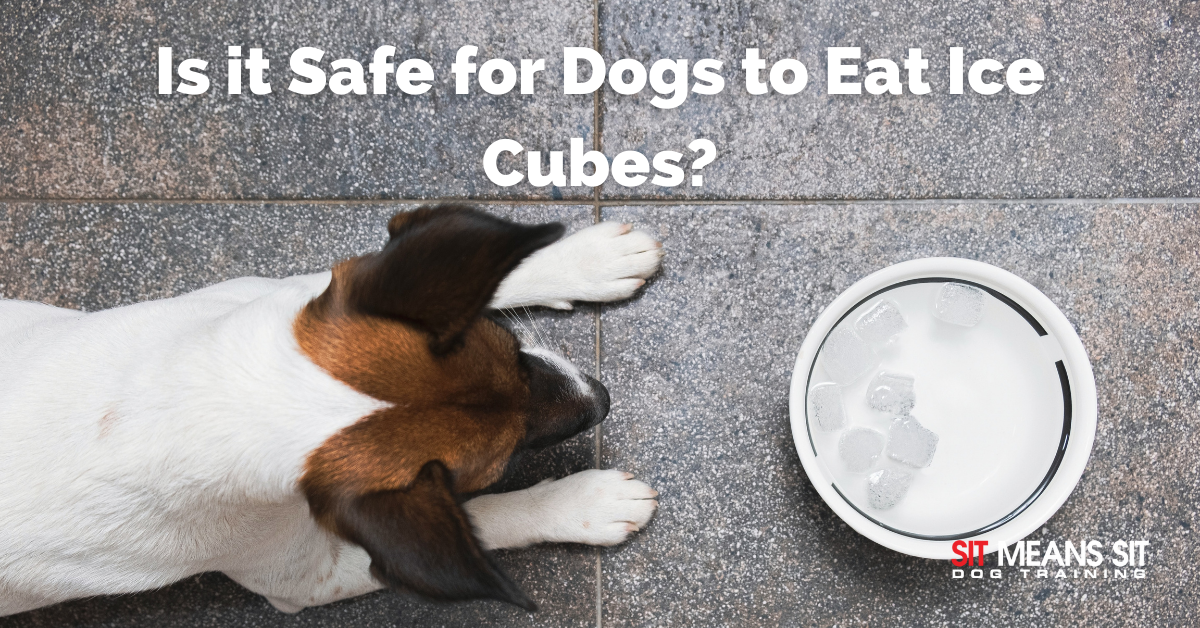
Is it Safe for Dogs to Eat Ice Cubes?
If you have a pooch that comes running every time that they hear you retrieving some ice, you might be wondering if it’s alright for you to give them some. What could frozen water possibly do? Well, let’s find out!
Is it Bad for Dogs to Eat Ice Cubes?
In short, no, there is no evidence to support that ice cubes are necessarily bad for your dog or cause them any serious health issues. When it comes down to it, your pup could maybe cause damage to their tooth enamel if they chomped down too hard on too much ice.
So it’s Good for Dogs to Eat Ice Cubes?
HOWEVER, we did not say that ice cubes are healthy and recommended for your pooch. While we, as humans, typically enjoy having ice cubes in our drinks, our dogs are, just that, dogs – not humans, so they’re not always going to like or be okay with the things that we are. Ice cubes don’t pose any added benefit to your pup versus regular water.
Does it Matter if the Ice is Crushed or Cubed?
It’s recommended that if your canine companion craves an ice cube every time you open that fridge door, you serve them crushed over cubed ice. Once again, chewing on ice can cause your pup’s enamel to break down – so to avoid a giant vet bill (and prevent your pooch from harming themselves) we recommend giving your pooch crushed ice pellets compared to full cubes.
Can You Give Puppies Ice Cubes for Teething?
At 2 weeks, most puppies get their first set of teeth. And if you’ve ever owned a puppy before then you probably know how important it is to help them get through their teething phase in as little pain as possible. With that being said, you might want to give your lil’ pooch some ice to help with their teething. It sounds like something that your pup would enjoy and would also soothe their aching gums. However, you should not be giving your puppy ice for teething. If you want to help your canine companion with their teething pain, then we recommend giving them soft and flexible chew toys (some of which can be frozen).
While ice cubes aren’t inherently dangerous for your canine companion, they’re not something that’s highly recommended. As always, we recommend discussing this with your vet first before making any major dietary changes,
